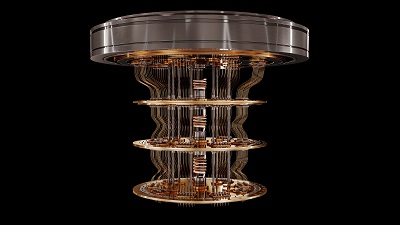 Germany plans to invest roughly €2 billion euros (US$2.4B) through 2025 on R&D for its first quantum computer and support technologies, the German economy and science ministries said today, according to a story published today by Reuters.
Germany plans to invest roughly €2 billion euros (US$2.4B) through 2025 on R&D for its first quantum computer and support technologies, the German economy and science ministries said today, according to a story published today by Reuters.
The article stated that Germany’s Aerospace Center (DLR) will be the recipient of about €740 million in subsidies and will work in partnership with industrial companies, medium-sized enterprises and start-ups to create two quantum consortia, the economy ministry said, which also said it will spend €878 million on practical applications, such as better management of energy resources, traffic control enhancement and accelerated active substances testing.
Germany’s goal: build a quantum system within five years.
“Quantum computing has the potential to revolutionize key industries of our economy,” Economy Minister Peter Altmaier told Reuters. “It’s our goal that Germany will become one of the best players worldwide in the development and practical application of quantum computing,” he said.
The German effort fits within the larger global HPC trend in which major geopolitical players feel strategically compelled to develop their own “indigenous technologies,” starting at the chip level, rather than relying on core technologies produced by countries and regions that are potential rivals.
The Reuters articles states that “the state subsidies involved need the approval of the European Commission, the European Union’s executive, which has urged member states to team up and develop the EU’s first quantum computer in five years, as part of efforts to reduce its dependence on non-European technologies.
Also reporting today on Germany’s quantum effort was E&T, which noted that two years ago, the UK committed to fund £153m on the domestic development of quantum computing.



